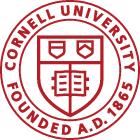- الأخبار والمقالات
- Find usIDP AustraliaIDP BahrainIDP BangladeshIDP CambodiaIDP CanadaIDP ChinaIDP EgyptIDP GhanaIDP Hong KongIDP IndiaIDP IndonesiaIDP IranIDP JordanIDP KenyaIDP KoreaIDP KuwaitIDP LebanonIDP MalaysiaIDP MauritiusIDP Middle EastIDP NepalIDP New ZealandIDP NigeriaIDP OmanIDP PakistanIDP PhilippinesIDP Saudi ArabiaIDP SingaporeIDP Sri LankaIDP Taiwan, ChinaIDP ThailandIDP TurkeyIDP UAEIDP VietnamIDP Corporate
- Social
- العربية
المكان
United States
المؤهل الدراسي
Ph.D.
الرسوم
USD24800
(2025)
المدة
8 Semester(s)
موعد بدء الدراسة القادم
26 August 2025
درجة القبول
7.0
امتحان الآيلتسCOURSE_INFO
Your action plan
خطوة 1
Shortlist your courses
Choose the best three courses you’re most likely to pursue.
خطوة 2
Check your eligibility
Get an instant in-principle offer for courses with the IDP FastLane tag.
خطوة 3
Apply through IDP Live
Fill out the form once and use it to apply to multiple courses.






